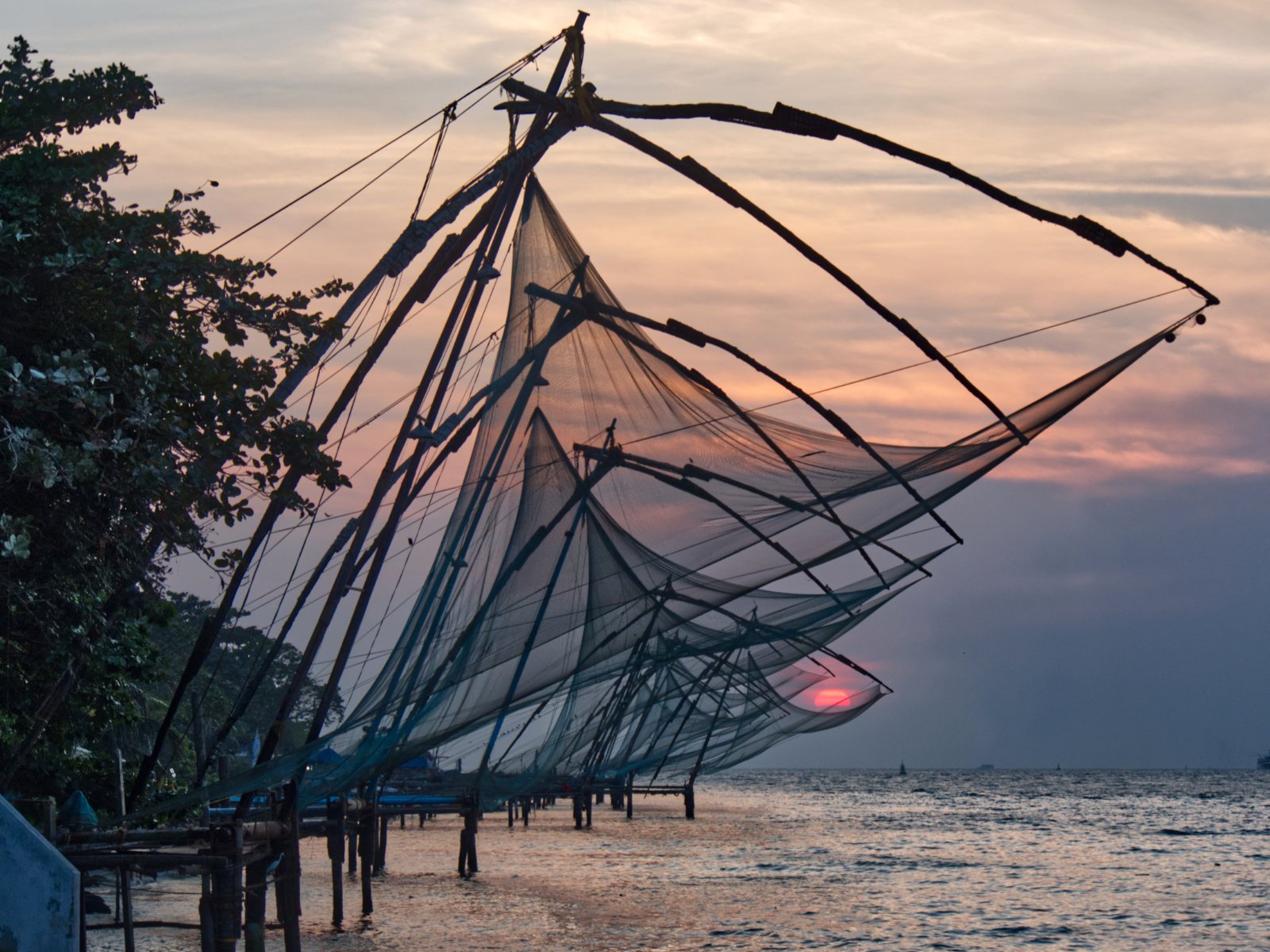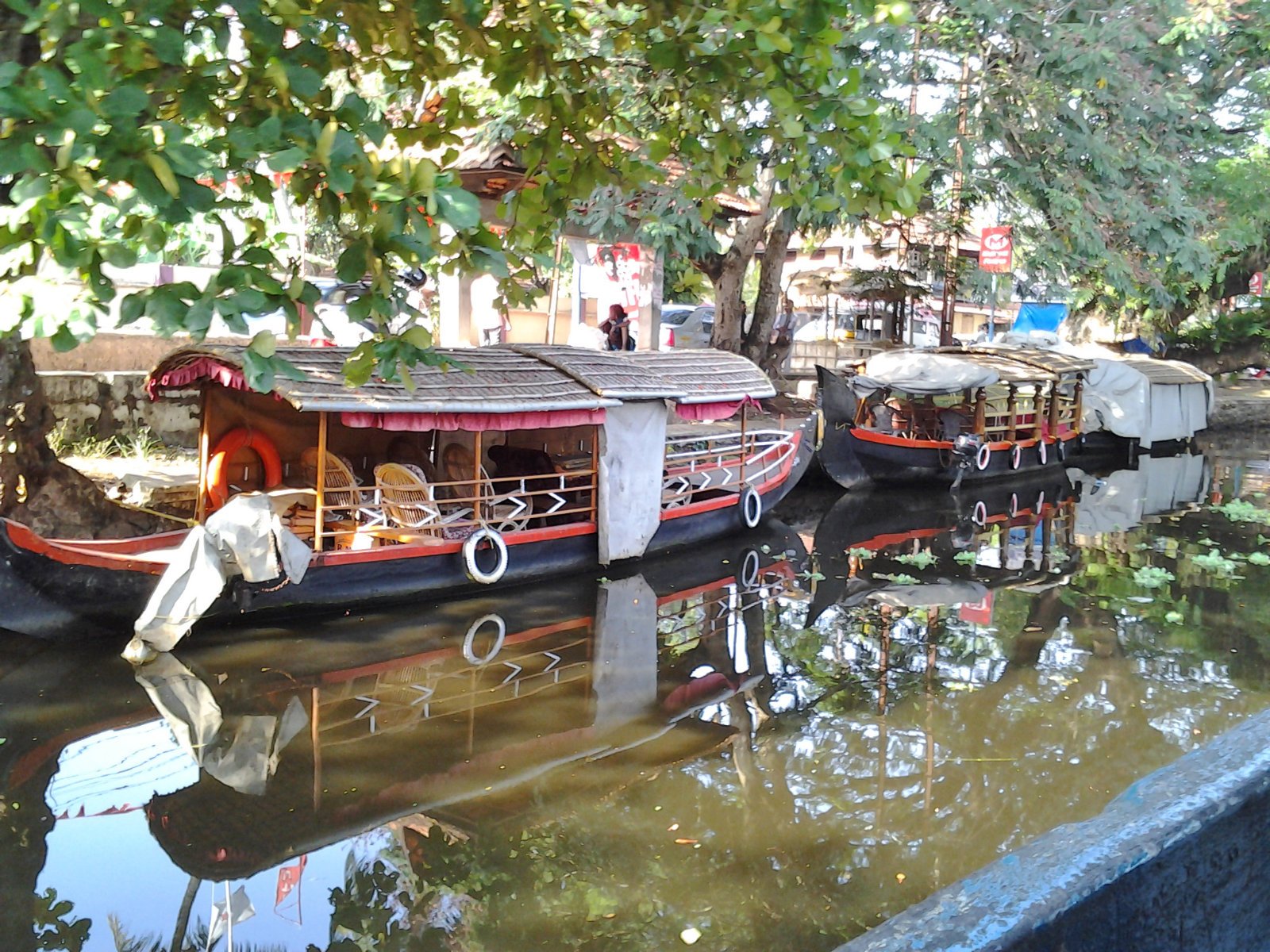Central Kerala
-
Central Kerala comprises three districts in the middle of the state and was once part of the Kingdom of Kochi. Today, it is a significant economic powerhouse with numerous industries and trading firms. Isolated by the Western Ghats, Kerala's long coastline has exposed it to various foreign influences, shaping its unique culture and language, Malayalam. Notably, Kerala upholds the high social status of women due to its former matrilineal kinship system's strength.
-
The Kerala backwaters are a network of brackish lagoons, canals, lakes, rivers, and inlets parallel to the Arabian Sea. This intricate system spans over 900 km, connecting five large lakes via canals fed by 38 rivers. Notably, Alappuzha hosts farming below sea level, a rare occurrence globally. Kuttanad, a significant rice-producing region in Kerala, is important in South India's ancient history.
-
Kerala has a stable climate with little seasonal variation. Daily temperatures typically range from the low 20s°C to the mid 30s°C throughout the year. It experiences the southwest monsoon from July to September and the reverse northeast monsoon from October to November. The region receives an average annual rainfall of about 3,000 mm.
Kochi
Kochi, an ancient port city on an estuary fed by six rivers, including the Periyar, is part of a vast network of backwaters stretching over 250 kilometres. With a rich history spanning over 2000 years, it boasts diverse cultural influences and has become a significant tourist destination. The St. Francis Church, built by the Portuguese in 1510, is believed to be India's oldest European church in India. The area also features Hindu temples, mosques, and a historic synagogue dating back to the 4th century CE at Mattancheri.
Alappuzha
Alappuzha, a city in southern Kerala, lies between the Arabian Sea and Vembanad Lake, south of Kochi. Its port was opened to foreign trade by the British in the late 18th century. The city's economy revolves around coconuts; coconut oil is milled there, and coir products are made and exported. It's sometimes called the "Venice of India" for its canals. Alappuzha has a growing tourism industry, connected by rail and canals to Thrissur and Thiruvananthapuram. About 1 mile offshore, the anchorage is protected by a mud bank. The city also has several colleges affiliated with the University of Kerala.
Kottayam sits near Vembanad Lake and the Minachil River mouth. It's a hub for the Syrian Christian community, said to have been founded by St. Thomas in 53 CE. Kottayam gained importance in the early 20th century with tea and rubber plantations on the nearby Anaimalai Hills. It's also an educational and cultural centre. Vembanad Lake, a popular spot for recreation, hosts boat races each August and September.




